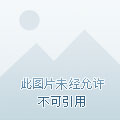How did the ancient Shu people celebrate the Spring Festival? What is the meaning of customs such as "New Year greeting" and drinking pepper and cypress wine? On January 15, the "small year" in the south, the first opening event of the year was held in the Donghuamen Archaeological Site Park near Chengdu's Tianfu Square. 20 groups of parent-child families walked into the site to understand the archaeological process, experience "blind box archaeology", and look back at the simple and vivid original ecology of the ancients and recall the taste of the Shudu capital in history in the archaeological classroom and folk experience activities of "looking back at the thousand years of Jincheng and exploring the taste of Chengdu in history".
According to the relevant person in charge of Chengdu Cultural Tourism Group, at present, Donghuamen Archaeological Site Park has completed the renovation of the outer façade of the basin, the roof, the glorious project and the phased work of cultural relics protection. Before this year's Chengdu Universiade, the Donghuamen Archaeological Site Park will connect the inner and outer fields, and the outfield sites will be fully completed and opened, fully presenting historical relics such as the Maha Pond from the fifth to the second Song Dynasty of the Sui and Tang dynasties, the Shu King Mansion of the Ming Dynasty, the architecture of the Tang Dynasty, and the pebble paved roads of the Song Dynasty.

▲Donghuamen Archaeological Site Park is open
Experience the archaeological blind box, children call out "increase knowledge"
Light steps and fluttering clothes. Wearing a Hanfu, 20 groups of parent-child families walked into the Donghuamen Archaeological Site Park in such a special way. Get a glimpse of the mysterious ancient Shu civilization and touch the thousands of years of history of Donghuamen.
Wells, roads, rivers, buildings, ditches and other relics found in archaeology are revealed one by one with the experience activities, and through these ruins, it is as if you can see the civilization and culture born, germinating and growing in this land. "Porcelain has been buried underground for a long time, and when it is unearthed, it shows varying degrees of fragmentation, deterioration, and mixed fragments, and requires meticulous restoration work to maximize the information." Zhang Xuefen, a researcher at the Chengdu Institute of Archaeology, described the process of cultural relics restoration in detail at the scene.
▲Donghuamen Archaeological Site Park is open
While listening, you can also experience the fun of on-site archaeology, and a lot of blind box "archaeological props" have been prepared at the event site for everyone to immerse themselves in the real cultural relics exploration process.
"The clay we're looking at now simulates that we've been fully investigated, locked the artifacts in the soil layer in the right place, and then stripped the treasures that were sealed in the soil layer from the soil." Under the leadership of the gold medal lecturer, master of cultural relics management, and the exclusive contracted anchor of Himalayan History Channel, the experiencers used the mini version of the "archaeological tools" presented in the archaeological "blind box" to plane the mound, analyze and judge the "soil", and determine the location of the buried "treasure"... After a series of careful operations, the "mysterious cultural relics" slowly took on their original appearance.
Knowing what the treasure is dug up with your own hands and the historical story behind it makes children shout "increase knowledge".
Listen to folk customs, eat stove sugar, and experience the taste of Chengdu's history
January 15, the 24th lunar month, is also the "small year" in the south, and the second opening of Donghuamen Archaeological Site Park is on this day, and the "taste of the year" is of course an indispensable element.
A hundred miles of different winds, thousands of miles of different customs. The archaeology class "Looking back at Jincheng for thousands of years and exploring the taste of Chengdu in history" was held on site, allowing the experiencers to understand the taste of Shudu in history. For example, "Do you know pepper wine?" "Pepper and cypress wine refers to pepper wine and cypress wine, a Chinese folk custom that is used on the first day of the first lunar month to worship ancestors or to parents to celebrate birthday and worship." The folklore experts at the scene explained in detail the history and allusions of "pepper and cypress wine", as well as "New Year greeting stickers", "flower lanterns", "keeping the New Year" and so on.
▲Children experience folk activities
Stroke by stroke, horizontal and vertical, children holding brushes, writing spring couplings, and feeling the charm of traditional culture in the pen and ink. As a must-have food for the New Year's festival, piles of sweet stove candy were prepared for everyone at the event. "With the medium of stove candy, I hope that children will remember the ancient traditional Chinese customs while eating stove candy."
Drawing door gods, turning sugar cakes, blowing sugar people... The activities were wonderful and the atmosphere was joyful. "Artifacts are 'letters' written by the past to the present and the future, and at their core are conservation, transmission and innovation." Zhong Wanfang, spokesperson for the Chinese New Year celebration activity in Donghuamen Archaeological Site Park, said that when people enter the site park, through display, introduction and participation, they can understand the meaning and value of this heritage, so that cultural relics are no longer dusty memories, so that thick history and culture can travel through time and space and really "live".
"In the future, we will plan more meaningful and interesting activities, such as camping, research, markets, curation, etc., so that everyone can take a stroll while drinking coffee, and look back at the thousand-year-old civilization of Chengdu at a glance." Regarding whether the future will be open to the outside world, Zhong Wanfang also gave an answer.
Red Star News Reporter Li Yanqin Photojournalist Wang Qin
Edited by Yu Mange